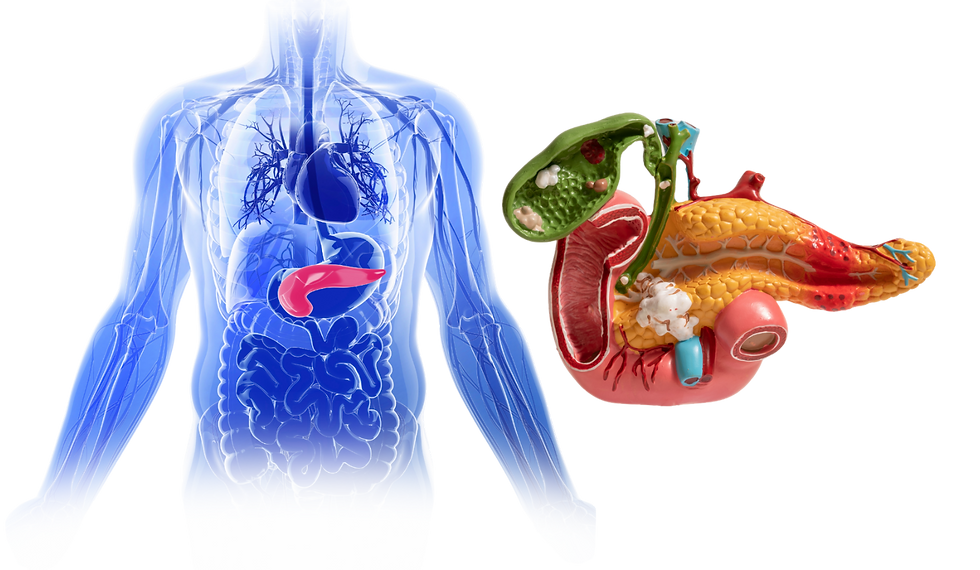_pdf%20(74).png)

Panzymax-10000
Pancreatin Capsule 150mg
Enzyme Replacement Therapy for Exocrine Pancreatic Insufficiency
Form: Hard gelatin capsule
Core Composition: Enteric-coated minimicropellets for targeted release
Appearance: Capsules and pellets contain approved pharmaceutical-grade colours
Function: Designed to bypass gastric acid and deliver enzymes directly to the small intestine
Indications of Panzymax-10000
Panzymax – 10000 is indicated for the management of Exocrine Pancreatic Insufficiency (EPI) due to:
-
Chronic Pancreatitis
-
Cystic Fibrosis
-
Pancreatic Surgery (e.g., pancreatectomy)
-
Pancreatic Cancer
-
Other gastrointestinal conditions requiring pancreatic enzyme support (e.g., post-gastric bypass)
Dosage
As prescribed by the physician, based on individual enzymatic requirements.
Route: Oral
Guidelines:
-
Swallow whole with water
-
Do not crush, chew, or open the capsule
-
Administer with or immediately after meals and snacks for best effect
How PanzymaX 10000™ Works
_pdf%20(76).png)
Pancreatin is a multi-enzyme complex that includes lipase, amylase, and protease:
-
Lipase: Hydrolyzes dietary fats into monoglycerides and free fatty acids
-
Amylase: Breaks down complex carbohydrates into simple sugars
-
Protease: Degrades proteins into absorbable peptides and amino acids
The enteric coating ensures enzymatic activity in the small intestine, not the stomach, for optimal absorption.
PanzymaX™ 10000
EnzymeStrength
-
Lipase10,000 USP Units
-
Protease37,500 USP Units
-
Amylase33,200 USP Units
Storage Instructions
-
Store below 30°C in a cool, dry place
-
Protect from moisture and direct sunlight
-
Keep out of reach of children
Warnings & Precautions
-
Not recommended for patients with known hypersensitivity to pancreatin or porcine proteins
-
Use cautiously in patients with cystic fibrosis (risk of fibrosing colonopathy)
-
Not to be used beyond prescribed dose
-
Use during pregnancy and lactation only if clearly advised by the physician
Possible Side Effects
-
Though well tolerated, some individuals may experience:
-
Gastrointestinal disturbances: nausea, abdominal pain, bloating, constipation or diarrhea
-
Rare allergic reactions: rash, itching, or respiratory symptoms
-
Anal irritation in pediatric patients, particularly with high doses

_pdf%20(4).png)
_pdf%20(7).png)
